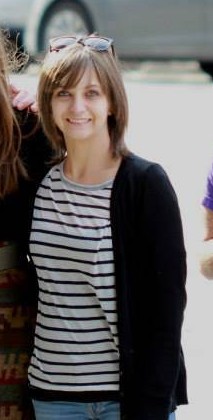This past fall, Apt. 9 Press published Five, a poetry collection by five different poets. With the start of VERSeFest this week, we thought this was be the perfect opportunity to profile all five writers featured in this collection. Today we look at the work of Jesslyn Delia Smith, an Ottawa-based author whose work has appeared in ottawater, the Bywords Quarterly Journal, The Steel Chisel, and In/Words Magazine. (See also part 1, part 3, part 4 and part 5 of this series of five profiles).
The most captivating aspect of Jesslyn Delia Smith’s poems, and the most striking once you’ve read the ten included in Five, are their thematic interconnectedness. Images of home, apartments and rooms are the leitmotifs in almost all the poems, including the opening “weather,” and closing “house party.” The first stanza in “weather” opens with the lines:
you sell the apartment downtown, with no time to clean cobwebs below aging decks, motivation to research new tenantsPossibly alluding to Smith’s daytime job working in a real estate office, the enjambed lines give new meaning to the archetypal image of a spider’s web, old and dusted. Rich in interpretive power, the stanza suggests the maturing and decline of the seller, the “you” in this poem, whose motivation has started to stagnate. Just as earth and slime gets caught in a spider’s web, so too, the “you” gets caught in the act of selling apartments and looking for new tenants.
The second stanza switches from “you” to “we,” while the poem ends with “i.” The shifts in pronouns create movement in the poem, and keep it lively. The “you” in the first stanza is continuously being redefined, first on his or her own terms, then within the relationship he or she shares with the speaker, and finally, in terms of the distance and absence with the speaker. The transitions are effective and powerful.
Smith’s use of resonance which strengthens the interconnectedness between the poems, is most striking in “wait,” “catching turtles,” and “weight.” In particular, “wait” is filled with domestic imagery — “ i make the bed,” “sun filters through curtains,” and “the longing is fresh with the laundry” — that ground the poem’s passage of time.
The line “each moment folds into / the next,” associates the image of folding sheets with the movement of time. The poem is seeped with absence. The absence of whomever the speaker of the poem is waiting for. This is a tender and intense poem, gentle and simple, and yet agonized, wanting.
In “catching turtles,” the closing line “the end of the day,” is a repetition of “i fold sheets alone / at the end of the day,” in the middle of “wait.” The speaker of the poem seems to refer to the same “you” as in “weather,” and perhaps the same you in “weight”: “where i regret” and a few lines later, “your lonely mistake.” The phonetic resonance between “wait” and “weight” is obvious, as is the return to the domestic sphere with the image of home:
a place not evolving, or not anymore, a place where we stand in the grass, where no one is calling us home







